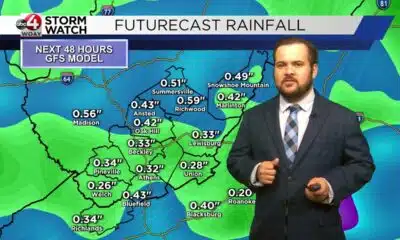News from the South - Kentucky News Feed
Relief for missed school days in doubt after picking up surprise addition in KY Senate
Relief for missed school days in doubt after picking up surprise addition in KY Senate
by McKenna Horsley, Kentucky Lantern
March 6, 2025
FRANKFORT — A bill that began as relief for Kentucky schools from weather-related closings was transformed by the Senate Thursday into relief for a controversial virtual school.
After the Senate overhauled House Bill 241, its sponsor, Rep. Timmy Truett, an elementary school principal, said he would recommend that the House now kill it.
The Kentucky Board of Education recently limited enrollment at the Kentucky Virtual School based out of the Cloverport Independent Schools in response to concerns about poor student performance and failure to meet staffing requirements.
The bill that emerged from the Republican-controlled Senate Thursday on a 23-14 vote would block the Department of Education from enforcing the enrollment cap on the privately-operated virtual school which has students statewide.
Some Republicans joined Democrats in voting against the bill.
Supporters of the virtual school attached their provision to a bill described by Senate President Pro Tem David Givens as “vitally important” for school districts affected by recent flooding.
State law requires districts to provide 170 student attendance days. The original bill would allow districts to have five of the required days waived and to lengthen the school day. It also granted them additional days in which students could be taught at home via virtual learning. Some schools in Eastern Kentucky have yet to reopen following floods in mid-February.
In a Thursday morning committee meeting, language from Senate Bill 268 was added to the House bill. Truett, R-McKee, told senators it was the first time he had seen the new version of his legislation.
“This bill started off as a really good bill for all the districts in the state of Kentucky, especially the districts in Eastern Kentucky where I live,” Truett said. “But you can take a good bill and make it bad. And I’m afraid that with the amendment that may be on this bill that I would have to encourage my colleagues to be against this bill.”
The move could mean the bill doesn’t pass at all this session, Truett warned.
Concerns about the Kentucky Virtual School have been reported by the Louisville Courier Journal and Lexington Herald-Leader, which highlighted numerous accusations and lawsuits raised against Stride, a for-profit company that has a contract to run the virtual academy. While it serves students across the state through online instruction, the academy is attached to Cloverport Independent Schools in Breckinridge County.
According to the media reports, the school has rapidly increased its enrollment over the past two years but state education officials say it has failed to meet staff and testing requirements. The Kentucky Board of Education recently took action to limit enrollment through a new statewide policy.
Senators debated not only the contents of the bill, but the legislative process behind it, for more than an hour Thursday afternoon. Democrats futilely attempted to argue the bill was out of order under Senate rules because it had emerged from the committee just hours earlier with significant changes.
Democratic Caucus Chair Sen. Reggie Thomas, of Lexington, cited the newspapers’ reports on the floor and emphasized the legislation is a “matter of public interest.”
“The public, I feel, does have a right to know about what we’re about to do,” Thomas said.
Sen. Aaron Reed, R-Shelbyville, who was the original sponsor of the bill revoking the enrollment cap on the virtual school, cited “emotional testimony” from parents of students enrolled at the academy. “What I heard from parents made one thing very clear — this decision (to cap enrollment) was made without fully considering the impact on students and families who had built their education around this model. “To me, that’s not right.”
Truett heard some of the Senate debate, watching from the side of the chamber. While he was present, Sen. Lindsey Tichenor, R-Smithfield, said that she wasn’t happy with Truett’s original bill, but was supportive of Reed’s bill, and added that her family used Stride’s curriculum for homeschooling in the past.
“I’m going to encourage the House sponsor to support this bill, because House Bill 241 didn’t change the way that I want to see it change,” she said before voting in favor of the bill. Tichenor had filed four floor amendments to the original version of the bill.
Truett quickly left after the vote.
Givens said he was a supporter of the new language and also supports the original provisions for making up school days missed because of weather. “This door provides relief for those districts,” he said. “This is vitally important that we do this.”
The House must concur with the Senate’s version of HB 241. It’s not the first time in recent sessions a bill has been drastically changed in one chamber. Last year, the House overhauled Senate Bill 6, which became a bill to eliminate diversity, equity and inclusion in higher education. The measure died at the end of the session because the Senate and House couldn’t agree.
The Cloverport district’s superintendent, Keith Haynes, said in an email to the Kentucky Lantern that while he couldn’t speak to the merits of the legislative process, he was supportive of the contents of SB 268 “as it affords us the opportunity to continue operating and improving the Kentucky Virtual Academy, which has provided so many students and families with the kind of school environment that best suits them.”
“Our experience with Stride has been great,” Haynes added. “They have been highly professional and laser focused on ensuring that KYVA is the kind of school that all involved can be proud of.”
Kentucky Lantern is part of States Newsroom, a nonprofit news network supported by grants and a coalition of donors as a 501c(3) public charity. Kentucky Lantern maintains editorial independence. Contact Editor Jamie Lucke for questions: info@kentuckylantern.com.
The post Relief for missed school days in doubt after picking up surprise addition in KY Senate appeared first on kentuckylantern.com
News from the South - Kentucky News Feed
Soaking rains finally moving out tonight
SUMMARY: Soaking rains brought flooding to Southern Indiana, especially Clark and Washington counties, with some areas receiving up to two inches of rain. Flash flood warnings were extended until 12:15 a.m. due to continued rainfall. While storms will taper off overnight, scattered showers and storms are expected each afternoon through Monday, with the strongest activity near the parkways. Temperatures will remain in the upper 80s to low 90s, with patchy fog possible in the mornings. Drier weather is forecast by midweek, but that will bring rising temperatures into the mid-90s and heat indices climbing well into the triple digits.
WLKY meteorologist Eric Zernich’s Thursday night forecast
Subscribe to WLKY on YouTube now for more: http://bit.ly/1e5KyMO
Get more Louisville news: http://www.wlky.com
Like us: http://www.facebook.com/wlkynews
Follow us: http://twitter.com/WLKY
Instagram: https://www.instagram.com/wlky/
News from the South - Kentucky News Feed
Morgantown resident throws first pitch at Great American Ballpark
SUMMARY: Butler County native Jason Mode, who has worked 14 years at McCormick Equipment, was honored to throw the first pitch at Great American Ballpark on July 12 before the Cincinnati Reds game against the Colorado Rockies. Mode, a baseball enthusiast with both children playing for the Butler County Bears, found the moment especially meaningful after his son’s recent emergency eye surgery. Despite being selected from 300 employees, Mode felt the day was surreal and unforgettable. He hopes to return someday to pitch while his son or daughter catches, treasuring the family connection to the sport and this once-in-a-lifetime opportunity.
The post Morgantown resident throws first pitch at Great American Ballpark appeared first on www.wnky.com
News from the South - Kentucky News Feed
2 new candidates — a physician politician and former federal prosecutor — enter US House race
by McKenna Horsley, Kentucky Lantern
July 17, 2025
Kentucky’s race for an open U.S. House seat got two new candidates — one from each party — Thursday morning.
Republican Dr. Ralph Alvarado, a former Kentucky lawmaker, and Democrat Zach Dembo, a former federal prosecutor, announced they’re running.
Alvarado has been Tennessee’s health commissioner since 2023, a post he held until recently announcing that he was considering a run for Congress from Kentucky.
The two new candidates bring the field to six, three from each party. The 6th Congressional District seat is up for grabs because its current holder, Republican Andy Barr, is running for U.S. Senate in hopes of succeeding Republican Mitch McConnell, retiring after seven terms.
Democrat Cherlynn Stevenson, a former Kentucky House Democratic caucus chair, has gained an early fundraising lead according to recent campaign finance reports. David Kloiber, a former Lexington council member, is also running for the Democratic nomination.
Alvarado joins Republicans state Rep. Ryan Dotson who announced his campaign earlier this year and state Rep. Deanna Gordon who launched her bid last week.
The primary election will be held in May 2026.
Alvarado: ‘Shoulder to shoulder with President Trump’
In his announcement, Alvarado, a physician, said he would “stand shoulder to shoulder with President Trump in Washington, to secure the border, revive the economy, and put America first.”
Alvarado describes himself as “a proud son of immigrants and a relentless defender of the American Dream.”
He said Trump is “under attack from every direction, and he needs reinforcements in Congress.”
Alvarado said in Congress he would “fight to lower healthcare costs, save rural hospitals, and stop illegal immigrants from abusing Medicaid,” as well as fight for Kentucky’s signature industries “including bourbon, thoroughbred horse racing and manufacturing.”
Alvarado was born in California, the son of a father from Costa Rica and mother from Argentina.
He became Kentucky’s first Hispanic legislator after unseating incumbent Democrat R.J. Palmer in a 2014 state Senate race from a district made up of Clark and parts of Fayette and Montgomery counties.
Alvarado spoke at the 2016 Republican National Committee in support of Trump. He was Republican Gov. Matt Bevin’s running mate in Bevin’s losing 2019 bid for reelection.
In his farewell speech to the Senate in January 2023, he said, “I love solving problems. … Work is play for me. When I wake up, my mind clicks and I can’t really turn it off until I go to bed. When I am in social gatherings with many of you, I pursue discussions about policy. Some of you have said, ‘Ralph, let it go. We’re not on the clock.’ The problem is that I’m always on the clock. I have a really hard time turning it off. It’s both a blessing and a curse.”
Tennessee’s Republican Gov. Bill Lee appointed Alvarado commissioner of the Tennessee Department of Health. He recently left the Tennessee post after saying he likely would run for Congress from Central Kentucky in response to state Sen. Amanda Mays Bledsoe’s announcement that she would not be seeking the seat.
In his announcement, Alvarado said he and his wife, Dawn, still live in Clark County where they raised their two children and are “active members of their church and community.”
Dembo: ‘D.C. corruption getting in the way of helping folks in Kentucky’
A former federal prosecutor and staffer for Gov. Andy Beshear, Dembo, a Lexingtonian, left his job as an assistant U.S. attorney in the Department of Justice earlier this year amid Trump’s return to the White House.
“I couldn’t stand by while the administration was playing politics with the justice system to carry out a personal political agenda instead of protecting the Constitution,” Dembo said in a telephone interview with the Kentucky Lantern. “And I felt like D.C. corruption was getting in the way of helping folks in Kentucky. So I wanted to continue serving my country, but obviously my public service had to take a different path, and that’s why I’m running for Congress now.”
Dembo previously worked in the U.S. Department of Justice during the first Trump administration, but said that “while there were many things I disagreed with, personally and politically, I still felt that everyday line prosecutors were able to do their job at DOJ.”
In February, several federal prosecutors resigned after being directed to drop charges in a corruption case against New York Mayor Eric Adams. More recently, Reuters reported earlier this week that 69 of the roughly 110 lawyers in the DOJ’s federal programs branch, which is tasked with defending legal challenges to the president’s policies, have left the unit since Trump’s recent election or plan to leave.
“This second administration, as we’ve seen through many publicly reported things, is not the same,” Dembo said, adding that “prosecutors are being asked to do things that are immoral, unethical” and facing being fired if they do not go along with it.
In addition to his decision to leave the DOJ, Dembo also has concerns about the recently passed GOP megabill, which included cuts to Medicaid and Supplemental Nutrition Assistance Program funding. Barr voted in favor of the bill, and has supported other Trump policies as he seeks the Republican nomination for U.S. Senate.
“The current congressman is voting very enthusiastically in favor so that he can give tax breaks to his rich buddies and coastal elites, which, again, that’s just not the Kentucky values I was raised with,” Dembo said of Barr.
Dembo plans to distinguish himself from his opponents by focusing on his background as a Navy veteran and federal service. However, he said he is “clear-eyed” that voters may not know him at present. But he remains optimistic that his background in public service, in Kentucky and the district will “connect with voters.”
“Certainly that’s going to be an uphill battle with maybe the name ID, but at the same time, I think it’s a real advantage at a time where people are looking for new and fresh ideas, so I will definitely be looking simply to add to the conversation, not to tear anyone down,” Dembo said.
Dembo has taken some lessons from Beshear. The governor named Dembo as his policy adviser in 2020. Dembo was later promoted to become Beshear’s legislative director.
“Something that I learned from Gov. Beshear is that I don’t think that Kentuckians primarily are waking up thinking about who they vote for or what party they’re registered. I think they’re worried about their families and how they can be successful and have a good paying job and make ends meet,” Dembo said.
“So that’s very much how I’m going to approach it, and it’s not going to be as important to me what party someone identifies with, because if I’m lucky enough to get elected, I’m going to represent all of them.”
This story was updated early Thursday morning to include Republican Ralph Alvarado’s announcement.
Kentucky Lantern is part of States Newsroom, a nonprofit news network supported by grants and a coalition of donors as a 501c(3) public charity. Kentucky Lantern maintains editorial independence. Contact Editor Jamie Lucke for questions: info@kentuckylantern.com.
The post 2 new candidates — a physician politician and former federal prosecutor — enter US House race appeared first on kentuckylantern.com
Note: The following A.I. based commentary is not part of the original article, reproduced above, but is offered in the hopes that it will promote greater media literacy and critical thinking, by making any potential bias more visible to the reader –Staff Editor.
Political Bias Rating: Centrist
This content provides a balanced overview of the candidates running for the open U.S. House seat in Kentucky’s 6th Congressional District, presenting both Republican and Democratic perspectives. The piece includes factual information, campaign announcements, and quotes from candidates across the political spectrum, without emphasizing or favoring either party. The reporting highlights differences in policy stances and backgrounds while maintaining a neutral tone, typical of centrist political coverage aimed at informing voters rather than persuading them.
-
News from the South - Tennessee News Feed5 days ago
Bread sold at Walmart, Kroger stores in TN, KY recalled over undeclared tree nut
-
News from the South - Georgia News Feed1 day ago
Aiken County family fleeing to Mexico due to Trump immigration policies
-
News from the South - Arkansas News Feed7 days ago
Man shot and killed in Benton County, near Rogers
-
News from the South - Alabama News Feed6 days ago
Girls Hold Lemonade Stand for St. Jude Hospital | July 12, 2025 | News 19 at 10 p.m. – Weekend
-
News from the South - Georgia News Feed7 days ago
Anti-ICE demonstrators march to Beaufort County Sheriff's Office
-
News from the South - Oklahoma News Feed7 days ago
Police say couple had 50+ animals living in home
-
Mississippi Today4 days ago
Coast judge upholds secrecy in politically charged case. Media appeals ruling.
-
Local News5 days ago
Oyster spawning begins as MDMR-USM Hatchery Program enters production phase using mobile hatchery











































